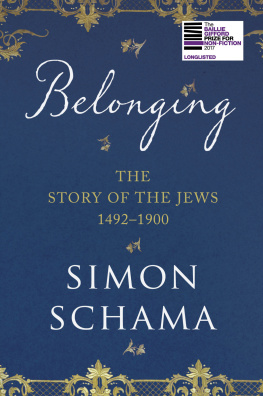Chloë Schama - Wild Romance: A Victorian Story of a Marriage, a Trial, and a Self-Made Woman
Here you can read online Chloë Schama - Wild Romance: A Victorian Story of a Marriage, a Trial, and a Self-Made Woman full text of the book (entire story) in english for free. Download pdf and epub, get meaning, cover and reviews about this ebook. year: 2010, publisher: Walker Books, genre: Non-fiction. Description of the work, (preface) as well as reviews are available. Best literature library LitArk.com created for fans of good reading and offers a wide selection of genres:
Romance novel
Science fiction
Adventure
Detective
Science
History
Home and family
Prose
Art
Politics
Computer
Non-fiction
Religion
Business
Children
Humor
Choose a favorite category and find really read worthwhile books. Enjoy immersion in the world of imagination, feel the emotions of the characters or learn something new for yourself, make an fascinating discovery.
- Book:Wild Romance: A Victorian Story of a Marriage, a Trial, and a Self-Made Woman
- Author:
- Publisher:Walker Books
- Genre:
- Year:2010
- Rating:3 / 5
- Favourites:Add to favourites
- Your mark:
- 60
- 1
- 2
- 3
- 4
- 5
Wild Romance: A Victorian Story of a Marriage, a Trial, and a Self-Made Woman: summary, description and annotation
We offer to read an annotation, description, summary or preface (depends on what the author of the book "Wild Romance: A Victorian Story of a Marriage, a Trial, and a Self-Made Woman" wrote himself). If you haven't found the necessary information about the book — write in the comments, we will try to find it.
Chloë Schama: author's other books
Who wrote Wild Romance: A Victorian Story of a Marriage, a Trial, and a Self-Made Woman? Find out the surname, the name of the author of the book and a list of all author's works by series.
Wild Romance: A Victorian Story of a Marriage, a Trial, and a Self-Made Woman — read online for free the complete book (whole text) full work
Below is the text of the book, divided by pages. System saving the place of the last page read, allows you to conveniently read the book "Wild Romance: A Victorian Story of a Marriage, a Trial, and a Self-Made Woman" online for free, without having to search again every time where you left off. Put a bookmark, and you can go to the page where you finished reading at any time.
Font size:
Interval:
Bookmark:
Wild Romance
A Victorian Story of a Marriage, a Trial,
and a Self -Made Woman
Chlo Schama

Walker & Company
NEW YORK

For my father, who taught me how to tell a story
CONTENTS
I n the summer of 2004 I lived a quiet life. I had been awarded a grant to travel and conduct research for my undergraduate senior thesis. I was spending long days in the British Library; most of my interactions took place in hushed reading rooms where voices seldom rose above a whisper and emotions surfaced only if you stole someones desk during the lunch hour. I had come to London to research sensation novels, a late Victorian literary genre. The problem, I discovered once I arrived, was that the novels were terribleat least those forgotten novels that I had claimed were so critical to my research. The stories were absurd, the characters flat; superficiality reigned. I changed tactics and turned to scholarly articles, hoping that these would point me toward some minute matter of esoteric interest from which I could spin a thesis.
I found such a matter in a footnote. A real-life trial, said the note, had allegedly inspired Wilkie Collinss sensational novel Man and Wife . In this trial, a woman, Maria Theresa Yelverton ne Longworth, accused her supposed husband, an Irish aristocrat named William Charles Yelverton, of abandoning her and marrying another woman. The two had carried on a clandestine relationship for years. She claimed it had culminated in marriage; he denied it. The 1861 trial was referred to as the Yelverton Bigamy Trial, and it attracted national, front-page attention for weeks. Subsequent trials appealing the decision would take place over the course of the next six years, going all the way to the House of Lords. As far as I could tell, interest had waned as the controversy dragged out in the late nineteenth century and had all but vanished in the twentieth. This sensation had slipped into obscurity.
After reading through the trial transcripts (eyewitness reports published by journalists), I read the letters that the couple had exchanged, which had been bound and used as evidence. Theresashe went by her middle namewas particularly captivating; she wrote with abandon, pouring her flamboyant personality into her letters. Yelverton, her ostensible husband, was more restrained and less prolific. Their contrasting styles showcased a disparity of sentiment that heightened the heartbreaking dynamic between them: her plaintive cries for affection were repeatedly answered with laconic restraint.
These forgotten figures became my companions that summer. How are you? my parents would ask. Guess what I discovered today, I would answer and steer the conversation to antique events or bemoan Yelvertons insensitivity. Theresa and Yelverton began to invade various corners of my physical world as well as my mental consciousness as I stalked the parts of London that they had occupied. About halfway through my research that summer, I discovered that Theresa had lived with an aunt in north London between the trials, in a house that was only a block from where I was spending the summer. She had led me to her story with a spellbinding finger; now she seemed to be drawing the strings of our connection tighter.
Theresas temporary home, 12 Randolph Road (I was staying at nearby 39 Randolph Avenue), was covered in scaffolding when I visited it for the first time. The house was clearly in a state of overhaul: dust covered the windows, and paint flaked from its walls. There were paint cans and brushes clustered on the stoop and a ladder leaning against the front of the house. Weeds flourished in the garden. One of the construction workers eyed me with understandable curiosity as I stood looking at the house. There was no English Heritage blue circle, signifying historical landmark status, posted above the door; no one else was snapping photos. But I was certain that I had discovered a treasure.
When I stumbled upon this story in the library, I was immediately convinced that I had found the type of history that the hallowed halls of legendary landmarks tend to silencethe type that lingers in letters and haunts street corners, the type that is too often forgotten, but provides the most intimate, personal portrait of the past. As Walter Benjamin said, To articulate the past historically, does not mean to recognize it the way it was... It means to seize hold of a memory as it flashes up at a moment of danger. There is always a danger that those who are less obviously and traditionally important, prominent, or powerful will be left out of the history of human experience. In this inadequate surveillance of the past, the human affections that bridge history are lost.
At the end of the summer I traveled to Edinburgh. I had intended to take a break from my research, but in that Scottish city, with the castle looming over me, the past seemed inescapable. I resumed the hunt and found Theresas Scottish apartmenta place she described as a little room, five storeys high, where we have been so happywhere she received Yelverton during the most intimate and regular phase of their courtship. The apartment was on the top floor of a narrow townhouse that had been converted into the office of a law firm, and her small window looked out over the shingled rooftops and red chimneys of the city. Theresas life had been so entwined in legal proceedings that this seemed more than a coincidence; it was additional evidence that this story would unfold of its own volition, with graceful echoes between the past and the present resonating of their own accord. Later, I would learn that Theresa had met and befriended Horace Greeley, the New York Tribune editor and one-time presidential candidate, when she came to America. I had grown up in Greeleys hometown, where his statue, raised on a pedestal several feet above the ground, watched over the traffic commuting to and from New York City on the Saw Mill Parkway. My high school diploma bore his name.
When I returned to London a month later, I walked past 12 Randolph Road. Although construction was ongoing inside, the exterior gleamed with a fresh coat of paint and the ladder had been put away. From the outside it was an elegant, stately structure, a home that would soon be filled with light and life. Until now, Theresas story, like the dusty prerenovation Number 12, has languished, even though the foundations for its restoration were already in place. Any novelist would be fortunate to invent the narrative arc that made up Theresas life. In Theresas words, Life, indeed, is a wild romance, if truly written. In this book, Ive tried to write that truly wild romance.
Note on Theresas Name
When historians wrote about the woman born with the name Maria Theresa Longworth in the 1960s, they referred to her as Theresa. In later decades, she was generally called Longworth so that she would be referred to in the same way as her male contemporaries. In my opinion, this ostensible egalitarianism does her a disservice, discounting the possibility that her marriage to William Charles Yelverton was valid by using only her maiden name. Because I would like to preserve that possibility, I will refer to her throughout this book as Theresa.
| 1852 | August | Theresa and Yelverton meet. |
| 1853 | March | Theresa and Yelverton begin a correspondence. |
| 1854 | Yelverton is stationed in the Crimea. | |
| 1855 | May | Theresa leaves Boulogne and takes a position with the Soeurs de Charit in the Crimea. |
Font size:
Interval:
Bookmark:
Similar books «Wild Romance: A Victorian Story of a Marriage, a Trial, and a Self-Made Woman»
Look at similar books to Wild Romance: A Victorian Story of a Marriage, a Trial, and a Self-Made Woman. We have selected literature similar in name and meaning in the hope of providing readers with more options to find new, interesting, not yet read works.
Discussion, reviews of the book Wild Romance: A Victorian Story of a Marriage, a Trial, and a Self-Made Woman and just readers' own opinions. Leave your comments, write what you think about the work, its meaning or the main characters. Specify what exactly you liked and what you didn't like, and why you think so.

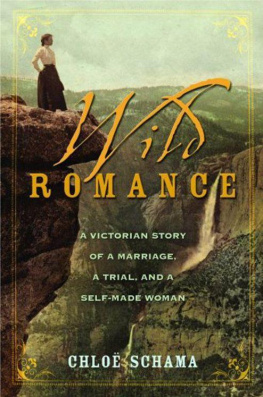

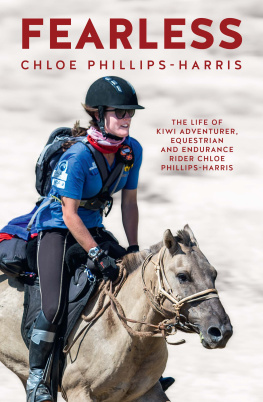
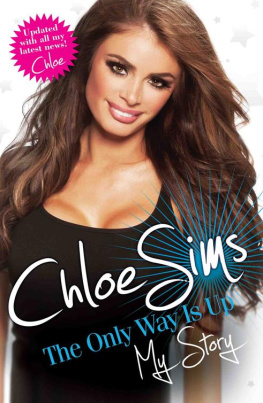
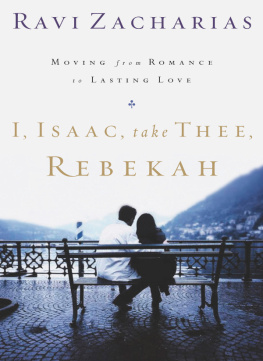

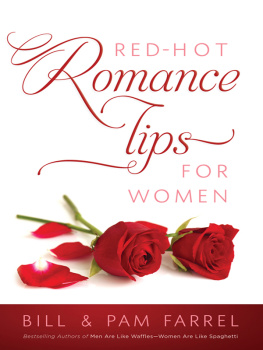
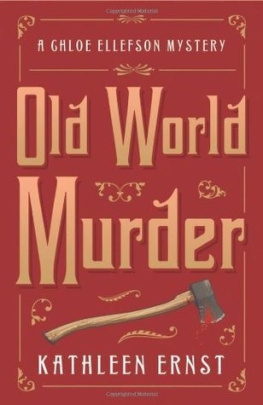
![Chloe Caldwell [Chloe Caldwell] - Women](/uploads/posts/book/114454/thumbs/chloe-caldwell-chloe-caldwell-women.jpg)
